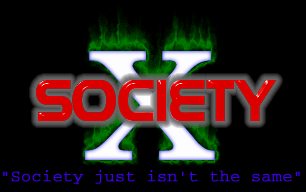6/28/2025
Peter Thiel Is A Threat To Society

Peter Thiel was recently interviewed (that's the transcript, video here) by the New York Times. He is the prototypical tech billionaire, loudly espousing far right and bizarre views. He is also specifically an intellectual, someone that should be listened to (according those that tell you who you should listen to). It's easy to see why, in some ways. He speaks clearly, confidently, and makes frequent references to things that sound smart. "Verticals", "Risk-averse", "Consumerist", "Disruption", "Moonshot", and so on. He knows things, so one would be reasonable to assume that he has some substantive logic behind that.
There's nothing there though. It's a tower of cards behind his logic, already crumbling at the bottom. He's challenged (extremely lightly) a couple times in the interview and he struggles to put to words why he's doing what he's doing. I had a several section piece going where I broke down different parts of the conversation, but I honestly think the most enlightening part is this (bolding for emphasis):
Douthat: So do you fear a plausible future where A.I., in a way, becomes itself stagnationist? That it's highly intelligent, creative in a conformist way. That it's like the Netflix algorithm: It makes infinite OK movies that people watch. It generates infinite OK ideas. It puts a bunch of people out of work and makes them obsolete. But it deepens stagnation in some way. Is that a fear?
Thiel: It — [sigh]. It's quite possible. That's certainly a risk. But I guess where I end up is: I still think we should be trying A.I., and the alternative is just total stagnation.
So, yeah, there's all sorts of interesting things that can happen. Maybe drones in a military context are combined with A.I., and OK, this is scary or dangerous or dystopian, or it's going to change things. But if you don't have A.I., wow, there's just nothing going on.
There's like a version of this discussion on the internet: Did the internet lead to more conformity and more wokeness? And there are all sorts of ways where it didn't lead to quite the cornucopian, diverse explosion of ideas that libertarians fantasized about in 1999. But counterfactually, I would argue that it was still better than the alternative, that if we hadn't had the internet, maybe it would've been worse. A.I. is better, it's better than the alternative, and the alternative is nothing at all.
Look, here's one place where the stagnationist arguments are still reinforced. The fact that we're only talking about A.I. — I feel that is always an implicit acknowledgment that but for A.I., we are in almost total stagnation.
He's a scared man, that's all it comes down to. Too wrapped up in his own made up problems to understand the realm outside Silicon Valley and the multitude of possibilities, the potentiality of meaning and purpose. He has no real problems, given the extent of his wealth and power, so he's made some up that are too big for him or God to handle.
You see, to him, your problems are pathetic and little. His problems though, they're serious problems because he's a serious person with serious thoughts. He's a main character in his world due to his station, and we are inflicted with his frankly bizarre lines of logic including being asked if AI will make a new God and him using it (in a bit of word association) to complain about trans people.
We're being forced to have a conversation around him when he's simply a person with delusions of grandeur. He is frustrated with humanity because he's beaten it; he wants something new, he's bored. He's fixated on science on an answer to these problems but repeatedly comes back around to religion because he's searching for purpose. He has no purpose in life, and I wish it wasn't everyone else's problem.
He is, in no uncertain terms, a threat to society, as he has lost his sense of self and has the means to do something significant about it. He waves away very real dangers he is helping create through Palantir and AI first companies. We, normal people, will pay the price for the societal structures he attempts to destroy and the powerful new threats he makes. As someone who has surpassed his humanity, he will watch on from the sidelines, idly musing about the real threat of stagnation.